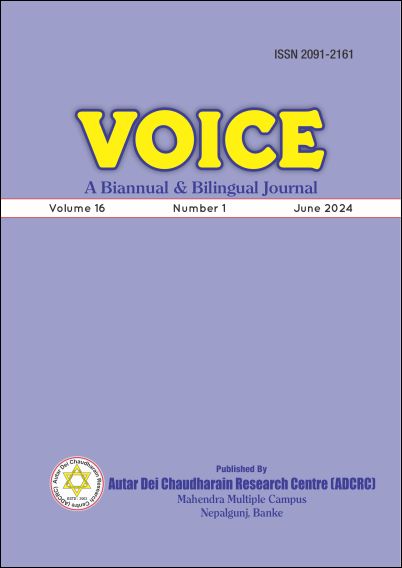Food Sovereignty in Nepal : A Current Appraisal
DOI:
https://doi.org/10.3126/voice.v16i1.67415Keywords:
Indigenous Knowledge, Agro ecology, Bio diversity, Organic farmingAbstract
Food sovereignty issue is integrated with agro ecology, climate and environmental justice, right of food workers, agrarian reform and justice to women and peasants. Despite of the promises of food security by the use of new practices and technologies global hunger has significantly increased. Industrial food production and indiscriminant use of chemical fertilizers pesticides have caused air, water and soil pollution and consequently environment and human health has been seriously impaired. Nepal being a developing economy could hardly endow all her possible resources just to address food security issue, hence the food sovereignty issue remained veiled till 2075B.S. Present study aims to enquire the working status of food sovereignty principal on real grounds in the country. The study is based on secondary data and is quantitative in nature. As pre design it is descriptive and prescriptive both. The study examines efficacy of food sovereignty principal on six pillar of it which are: focus on food for people; Value food providers; localize food system; puts control locally; builds knowledge and skills and work with nature. Examining through facts and figures, it is found that there is food crisis in the country with its quantity and nutritive value. The extended net works of cooperative throughout the country may play significant role in activating food sovereignty principals. Existences of middle man, poorer financial assistance, poorer insurance coverage, limitation of minimum price support policy to fewer crops are some of the major problems. In addition land fragmentation, diminishing wet and dry land area are additional bottlenecks. Indiscriminant use of chemical fertilizers and pesticides pose a crucial problem to practice organic farming. Activities as river bed farming, tharu alu cultivation, Jhol mal preparation, kitchen gardening, community seed bank and use of local biochar are working well with positive outcomes to support food sovereignty efforts.
Downloads
Downloads
Published
How to Cite
Issue
Section
License
Copyright (c) 2024 The Author(s)

This work is licensed under a Creative Commons Attribution-NonCommercial 4.0 International License.
CC BY-NC: This license allows reusers to distribute, remix, adapt, and build upon the material in any medium or format for noncommercial purposes only, and only so long as attribution is given to the creator.




